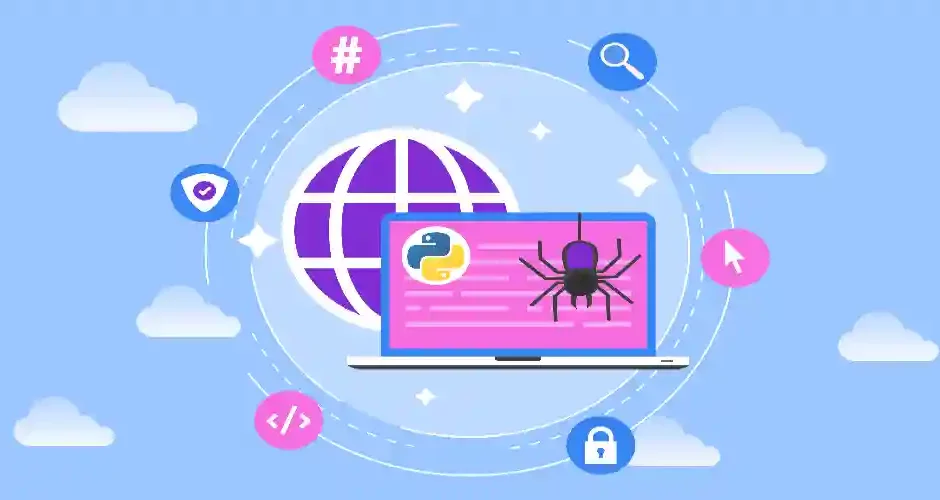In the vast expanse of the internet, where information is abundant but dispersed, the tools of the digital age come to our rescue. Two such heroes in the realm of data acquisition are web crawlers and data scraping services. In this article, we will explore the dynamic synergy between these tools, the essential role they play in the digital ecosystem, and how they can be harnessed to unlock valuable data from the web.
Understanding Web Crawlers
A web crawler, often referred to as a web spider or web bot, is a software program designed to systematically navigate the internet and index web pages. The primary function of a web crawler is to visit websites, follow links, and gather information about the content and structure of web pages. Here’s how web crawlers work:
- Seed URL: A web crawler typically starts with a seed URL, which serves as the initial point of entry into the web. From there, it begins to explore the web by following links on the seed page.
- Crawling and Indexing: As the crawler moves from one web page to another, it collects data from each page it visits. This data can include text, images, metadata, and links to other pages.
- Link Analysis: Web crawlers analyze the links they encounter. They record new URLs and add them to a queue for future exploration. This process continues recursively, allowing the crawler to delve deeper into the web.
- Indexing: The collected data is indexed and stored in a structured database. This index serves as the foundation for search engines like Google, enabling them to quickly retrieve and display relevant search results.
The Role of Data Scraping Services
While web crawlers focus on gathering data from web pages, data scraping service take it a step further. These services specialize in extracting specific data from websites according to predefined criteria. Here’s how data scraping services complement web crawlers:
- Custom Data Extraction: Data scraping services are tailored to extract particular types of data from websites. This could include product prices from e-commerce sites, contact information from directories, or news articles from media websites.
- Structured Output: The data extracted by data scraping services is usually delivered in a structured format, such as CSV, JSON, or a database entry. This makes it easy to analyze and use for various purposes.
- Automation: Data scraping services can be set up to run on a schedule or triggered by specific events. This automation ensures that the data is continually updated and relevant.
- Quality Control: Data scraping services often include quality control mechanisms to ensure the accuracy and consistency of the extracted data. This can include data validation, cleaning, and transformation.
The Synergy: Web Crawlers and Data Scraping Services
The synergy between web crawlers and data scraping services is evident in various applications across industries:
1. Search Engines
Search engines like Google rely on web crawlers to index the web’s vast content. Data scraping services can complement this process by extracting structured data such as product listings, reviews, and contact information, which can enhance search results.
2. E-commerce
In the world of online retail, web crawlers can monitor competitors’ prices and product listings, while data scraping services can extract this information in a structured format. This data can be used for pricing strategies and market analysis.
3. Real Estate
Web crawlers can scan real estate websites for property listings, while data scraping services can extract details such as property features, prices, and contact information. This data is invaluable for real estate professionals and property buyers.
4. Financial Analysis
Web crawlers can gather financial news and updates, while data scraping services can extract stock prices, market trends, and financial reports. This combined data can aid investors and financial analysts.
5. Lead Generation
Web crawlers can identify potential leads by crawling websites and identifying contact information. Data scraping services can then extract this information and deliver it in a structured format to sales and marketing teams.
The Legal and Ethical Considerations
While web crawlers and data scraping services offer immense value, it’s essential to navigate the legal and ethical aspects responsibly:
- Respect Robots.txt: Always check a website’s robots.txt file, which may specify rules for web crawlers and scrapers. Follow these guidelines to steer clear of legal complications.
- Terms of Service: Review a website’s terms of service to ensure compliance with scraping activities. Some websites explicitly prohibit data scraping in their terms and conditions.
- Privacy and Consent: When scraping data that may contain personal or sensitive information, ensure that you have the necessary consent and comply with privacy regulations.
- Rate Limiting: Implement rate limiting in your scraping activities to avoid overloading a website’s server with excessive requests, which can lead to server strain and potential legal consequences.
Conclusion
Web crawlers and data scraping services are a formidable duo in the digital age, working in harmony to unlock the vast reservoirs of information on the web. While web crawlers pave the way by indexing web pages and following links, data scraping services provide the finesse, extracting precise data in structured formats. This synergy finds application across industries, from search engines to e-commerce, real estate, financial analysis, and lead generation.
However, it’s imperative to wield these tools responsibly, adhering to legal and ethical considerations. Respect for website terms of service, privacy regulations, and rate limiting are essential practices to ensure that web crawling and data scraping contribute positively to the digital landscape. When used ethically and responsibly, the dynamic duo of web crawlers and data scraping services becomes an invaluable asset for businesses and individuals seeking to harness the boundless data of the internet.



